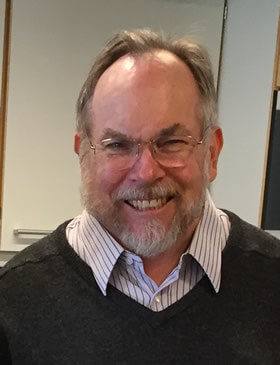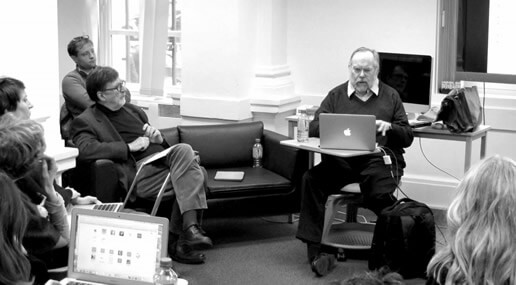Bernal Prize 2016: Michael Lynch
Michael Lynch has made a long-term and highly influential contribution to Science and Technology Studies and to the intellectual life of 4S.
Mike received his PhD in Social Sciences from the University of California at Irvine. He has worked in Sociology at Whitman College and Boston University, Human Sciences at Brunel University, and Science & Technology Studies at Cornell University. Trained in ethnomethodology, Mike’s early work was central to the development of the laboratory studies tradition, and his focus on ‘ordinary action’ has profoundly shaped the field. His longstanding interest in scientific visualization has been a key contribution, bringing attention to what was, at the time that he first oriented to it, a neglected area of inquiry. Over the course of his career Mike has developed and extended the now-widespread use of ethnographic and ethnomethodological approaches within STS. He has produced a number of prominent – and often provocative – papers, whether arguing ‘against reflexivity’ (Theory, Culture & Society June 2000 vol. 17 no. 3 26-54) or in favor of ‘science as a vacation’ (Organization January 2009 vol. 16 no. 1 101-119), which have unsettled and challenged conventional STS assumptions. His work on evidence has crossed a number of domains, including the scientific laboratory and the courtroom, and consistently combines a keen respect for empirical detail with strong conceptual insight. In sum, Mike Lynch is a distinctive and committed scholar who has raised the intellectual standing of STS, and helped to bring new generations into the field.
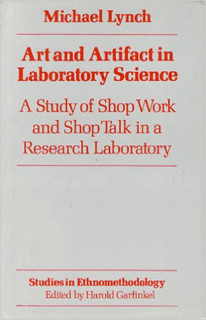
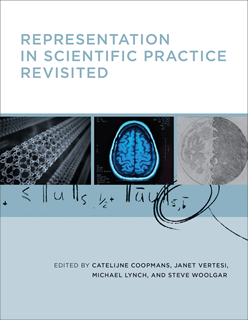
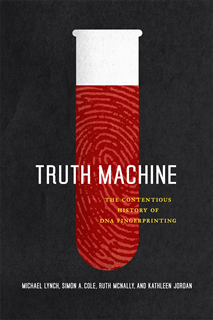
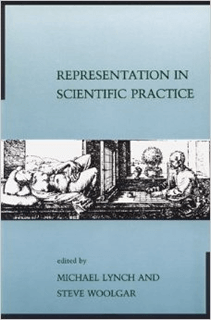
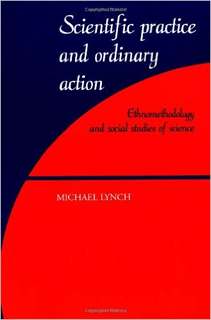
Mike has played many important roles as well within 4S (not least as a President from 2008 to 2009) and in STS more generally. He made an exceptional contribution in his ten-year period as editor of the journal Social Studies of Science, with countless colleagues benefitting from his sharp yet always constructive commentaries. His books include Art and Artifact in Laboratory Science (1985), Representation in Scientific Practice (Revisited) (1990/2014), Scientific Practice and Ordinary Action (1993), and Truth Machine: The Contentious History of DNA Fingerprinting (2008). Mike’s current research examines the production, presentation, and contestation of evidence in science and law.
Mike Lynch in seminar at Sciences Po, 17 March 2016
Please join us in congratulating Professor Michael Lynch as winner of the 2016 John Desmond Bernal Prize of the Society for Social Studies of Science!
Bernal Prize Committee: Ulrike Felt (Chair), Paul Edwards, Joan Fujimura, and Alan Irwin.
Acceptance by Michael Lynch
I’m very grateful and honored to receive this year’s Bernal Prize. It means an awful lot to me to be recognized by the 4S, because it has been such an important gathering for me. When I first joined the 4S in 1981, I was a recent PhD with an interdisciplinary degree in Social Sciences. At the time, I was being sustained by a series of postdoctoral fellowships and occasional adjunct teaching, and, judging from the returns of my job applications, I had dim prospects for employment in sociology or any other academic discipline. The 4S was small at the time – I recall that less than 100 people attended the 1981 meeting – but it was not long before it (together with the ascendant field of STS) began to grow in size and significance. My prospects were buoyed up with it, and the field became my primary intellectual home. I doubt that I’d be employed in academia today if STS had not prospered. I’d like to think that I have contributed – in however small a way – to that prosperity, but I have no doubt that I am mainly a beneficiary of what others have done to pave the way for what we now recognize as STS – whatever that is, and however we recognize it. There are many people I’d like to thank, and I’m particularly grateful to the members of the Bernal Prize Committee for this award.

